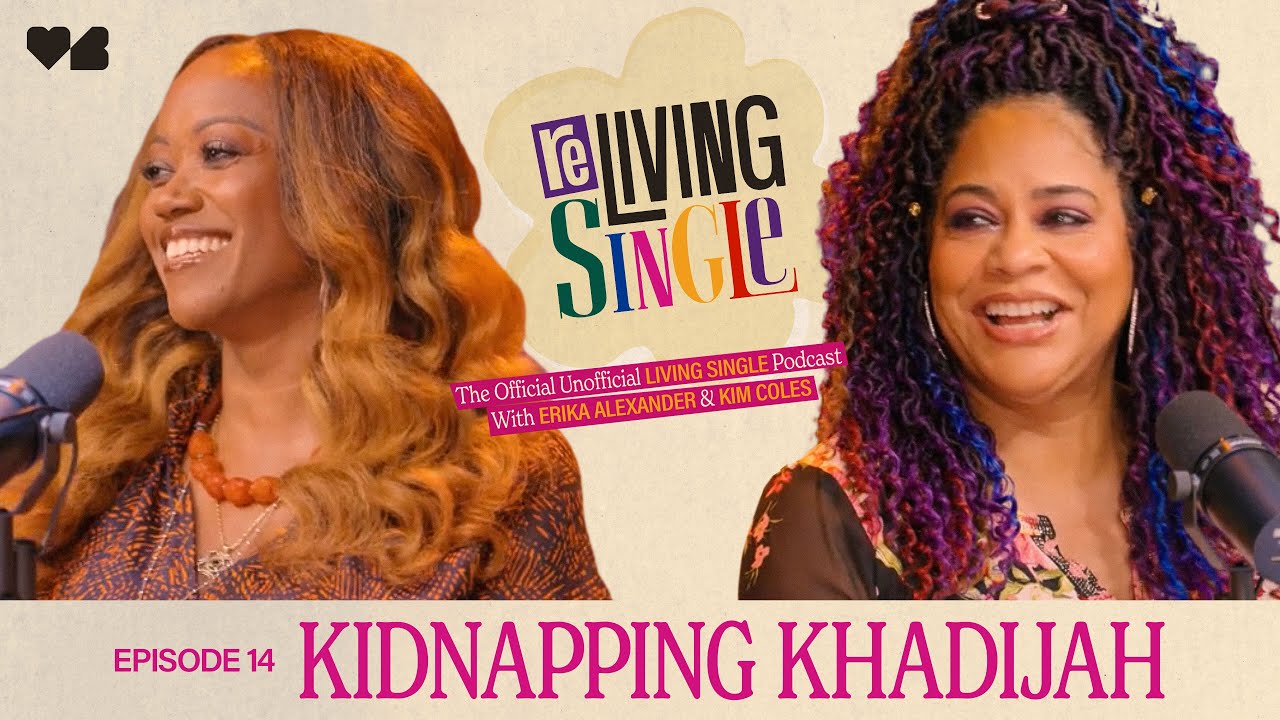If there’s one show that continues to spark nostalgia and community pride decades after its initial run, it’s Living Single. But what really happened before the lights, cameras, and iconic zingers? In a candid pre-show podcast, hosts Kim Coles and Erica Alexander peel back the curtain on how the cultural phenomenon came to life—sharing stories, struggles, laughs, and a peek behind-the-scenes that fans have craved for years.
The Spark—From Purposeless to Purposeful
Kim Coles sets the scene with a truth bomb: before Living Single came knocking, she was out of work after being let go from In Living Color. “I was in the purgatory of waiting to work again,” she recalls. Like many actors, she found herself in the “holding deal” limbo, paid to wait while Hollywood figured out what to do with her talent. Just when gigs seemed few and far between, a pivotal phone call changed everything. “My manager’s name was Sinclair—go figure!” Kim laughs, highlighting the almost fated path toward her beloved role.
Packaging Powerhouses: Destiny and Demand
The process wasn’t just about casting stars—it was also about building community behind the scenes. Early on, Kim advocated for authenticity: “If the show is about bashing men, I’m not interested.” The producers agreed and floated the idea of working with Queen Latifah. Both women, already fans of each other, were enthusiastic—and their mutual agency, William Morris, packaged them together for the show.
But it didn’t stop there. Kim pushed for a Black showrunner, believing only someone from the community could genuinely tell their story. Enter Yvette Denise Lee (now Lee Bowser): a rising writer with credits on A Different World and Hangin’ with Mr. Cooper, selected after both Kim and Latifah personally approved her. Their power started from the inside out.
Representation Before “Representation” Was Mainstream
The assembling of the cast was a careful blend of celebrity, chemistry, and sometimes, serendipity. Queen Latifah’s character, Khadijah, mirrored her real-life entrepreneurial spirit and strength, while Kim Fields’ selection as Regine brought an iconic child star into a grown-woman role audiences would adore.
But getting the script right wasn’t smooth sailing. After an initial misfire, Kim and Latifah both extended their deals so Yvette could revise the pilot, staunchly supporting a vision they believed in. With a strategic helping hand from veteran showrunner Tom Anderson, the show finally got the green light.
The Journeyman’s Path: Erica Alexander’s Arrival
Erica Alexander, meanwhile, came into the fold “as a samurai—a masterless actor looking for her next battle.” Having already played Cousin Pam on The Cosby Show, she was no stranger to groundbreaking television. She broke down how most actors live job-to-job, often coming in as hired guns rather than handpicked stars.
In a particularly vulnerable moment, Erica details the colorism that shaped her journey as a dark-skinned actress in Hollywood—a reminder of the nuanced barriers Black actors continue to face. Her and TC Carson’s presence in the cast introduced a new conversation about visibility both on screen and within the walls of talent agencies.
The Fox Factor: Building & Branding Black TV
No origin story of Living Single is complete without highlighting the role of Fox as a then-“scrappy” network intent on reaching overlooked audiences. Channels like NBC had the Cosby Show, but Fox built its brand and success by actively courting urban, Black, and Latino communities. From In Living Color to Living Single, the network became a beacon of opportunity and innovation.
Yet, Erica and Kim both stress: while Fox relied on Black creatives and audiences to build its foundation, the network was hesitant to fully invest. “They didn’t put the money into the show,” Kim points out, sharing how Living Single achieved number-one status despite modest budgets, “raggedy trailers,” and patchy promotional support—especially compared to Fox’s other big-budget hits.
More Than Just a Black Show
The conversation takes on a greater significance in the way Kim and Erica discuss how shows are marketed and labeled. They raise an important distinction: no one called The Jeffersons or Sanford and Son a “Black show” back in the day—they were just great shows that happened to feature Black casts. That changed with Fox, leading to both community ownership and unfortunate marginalization in industry circles.
The Legacy: Lasting Magic
Despite every backstage hiccup, budget curveball, and identity challenge, Living Single remains a beloved, boundary-breaking show. The cast—through mutual support, trust, and a shared sense of purpose—turned every hurdle into magic. The podcast closes with Kim and Erica brainstorming a rewatch series, ready to relive the moments and stories that defined a generation.

Final Thoughts
What stands out most in Kim and Erica’s pre-show exchange is their raw honesty, humor, and obvious love for their craft and community. Living Single wasn’t just “another Black show”—it was, and remains, a testament to resilience, representation, and the possibilities sparked when artists take charge of their own narratives.
Stay tuned as this dream team reunites, “reliving single” and diving even deeper into the stories that made TV history.



